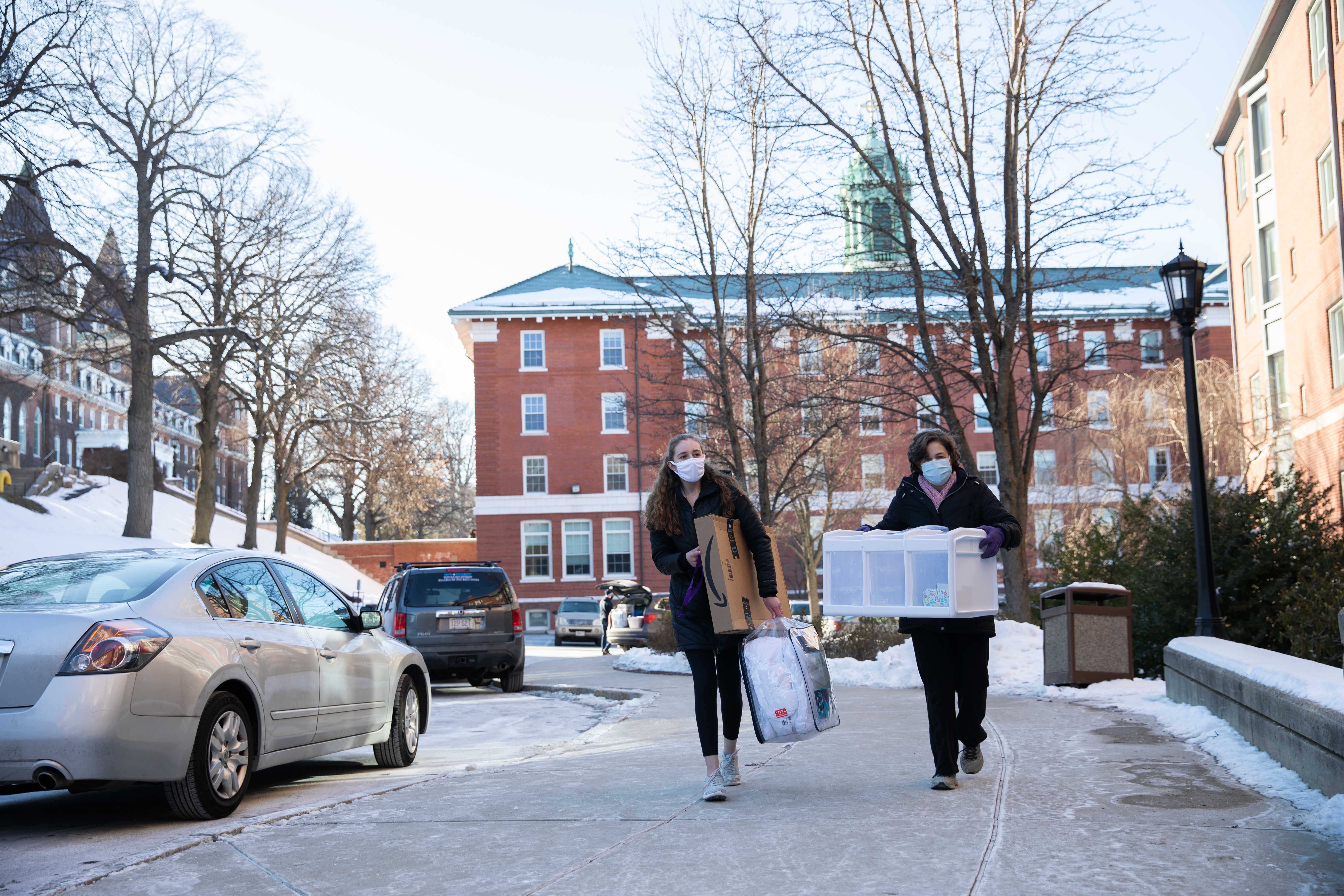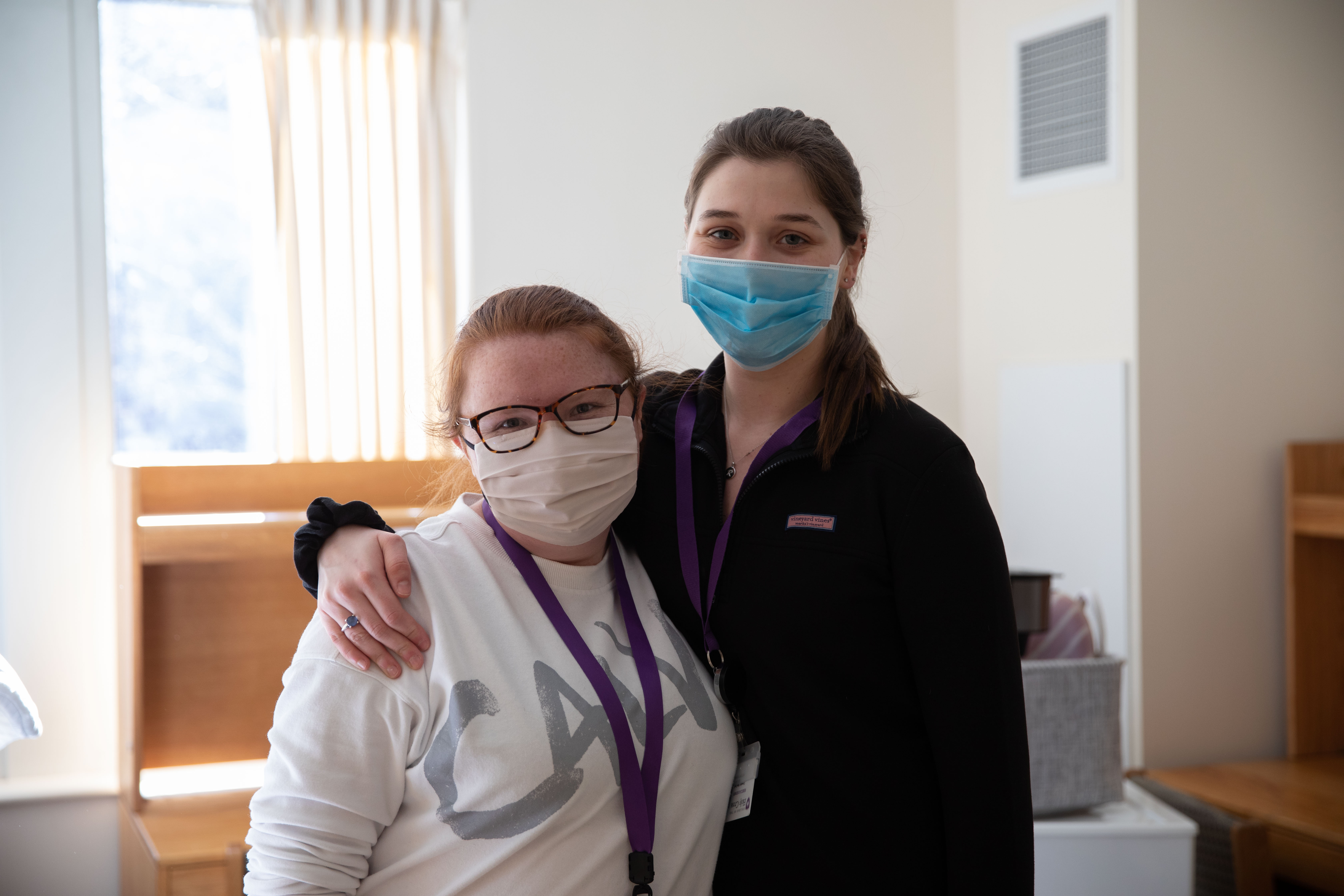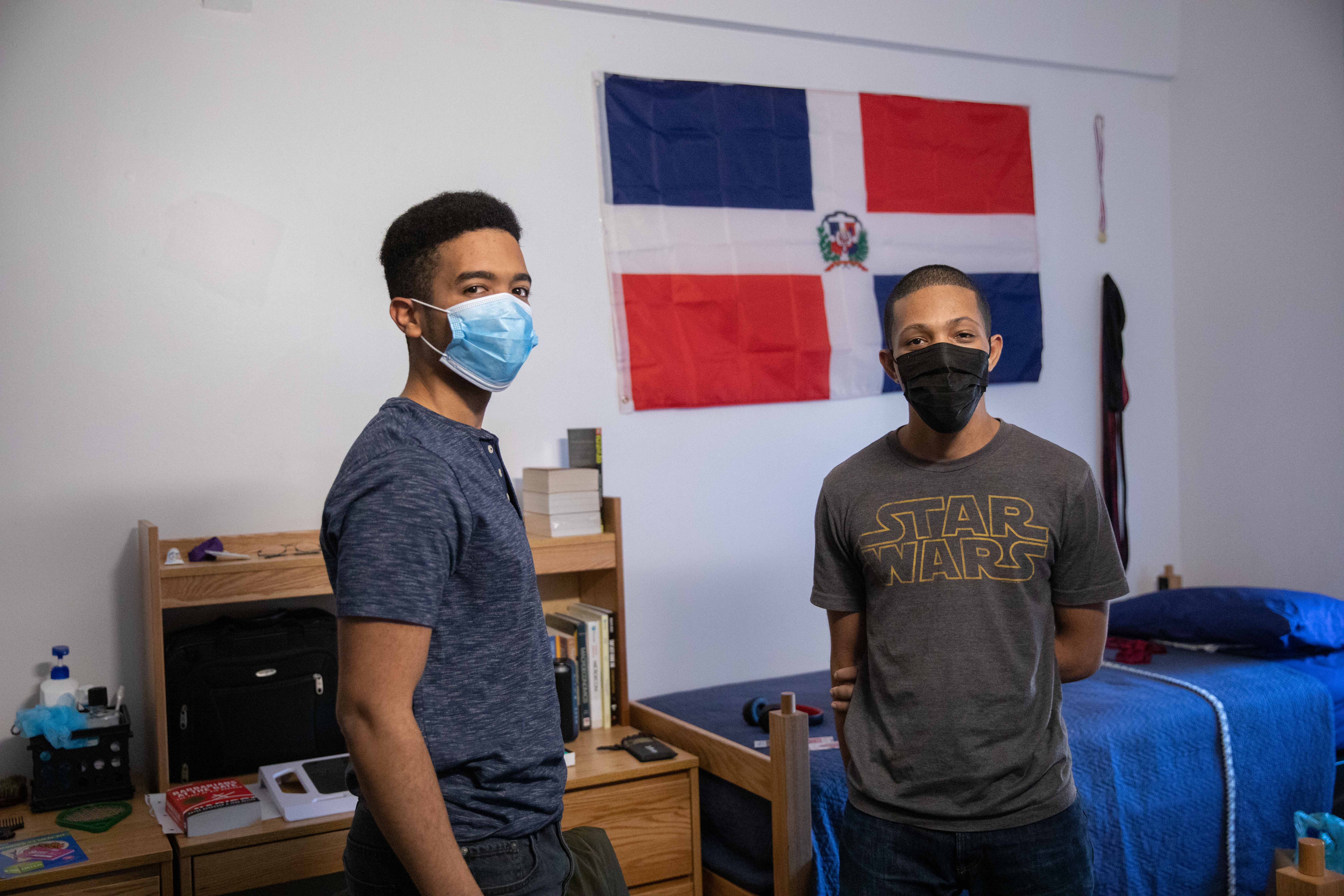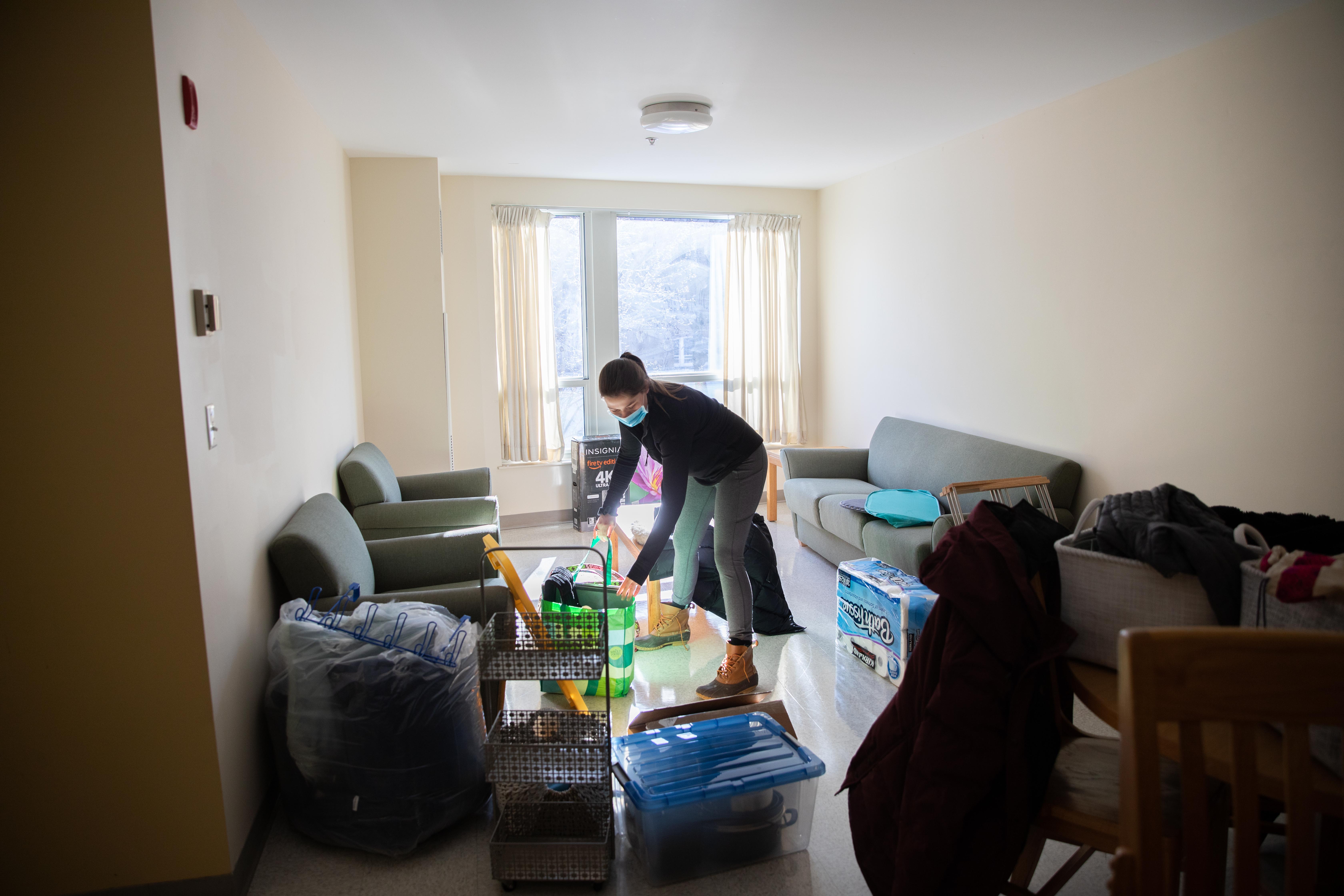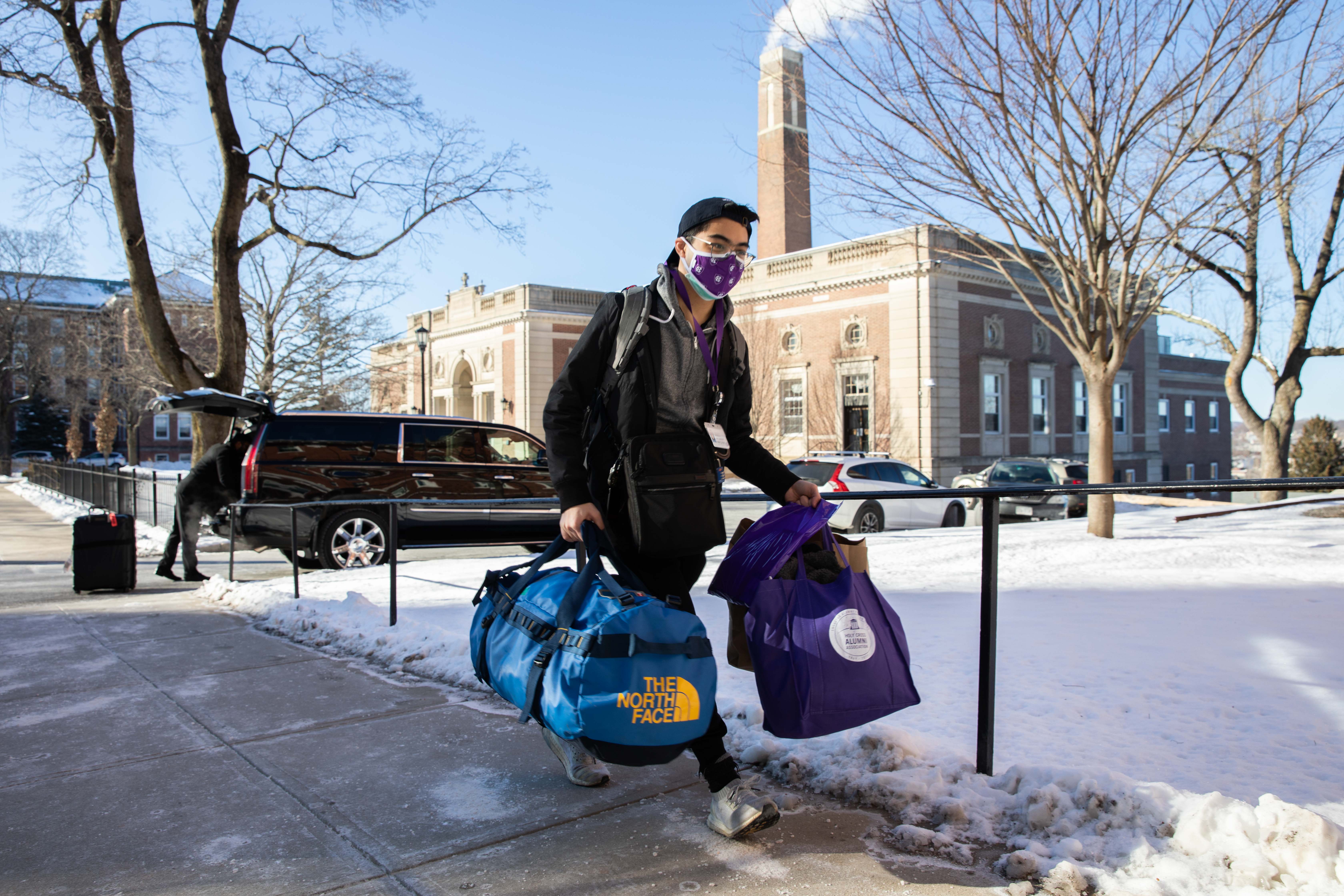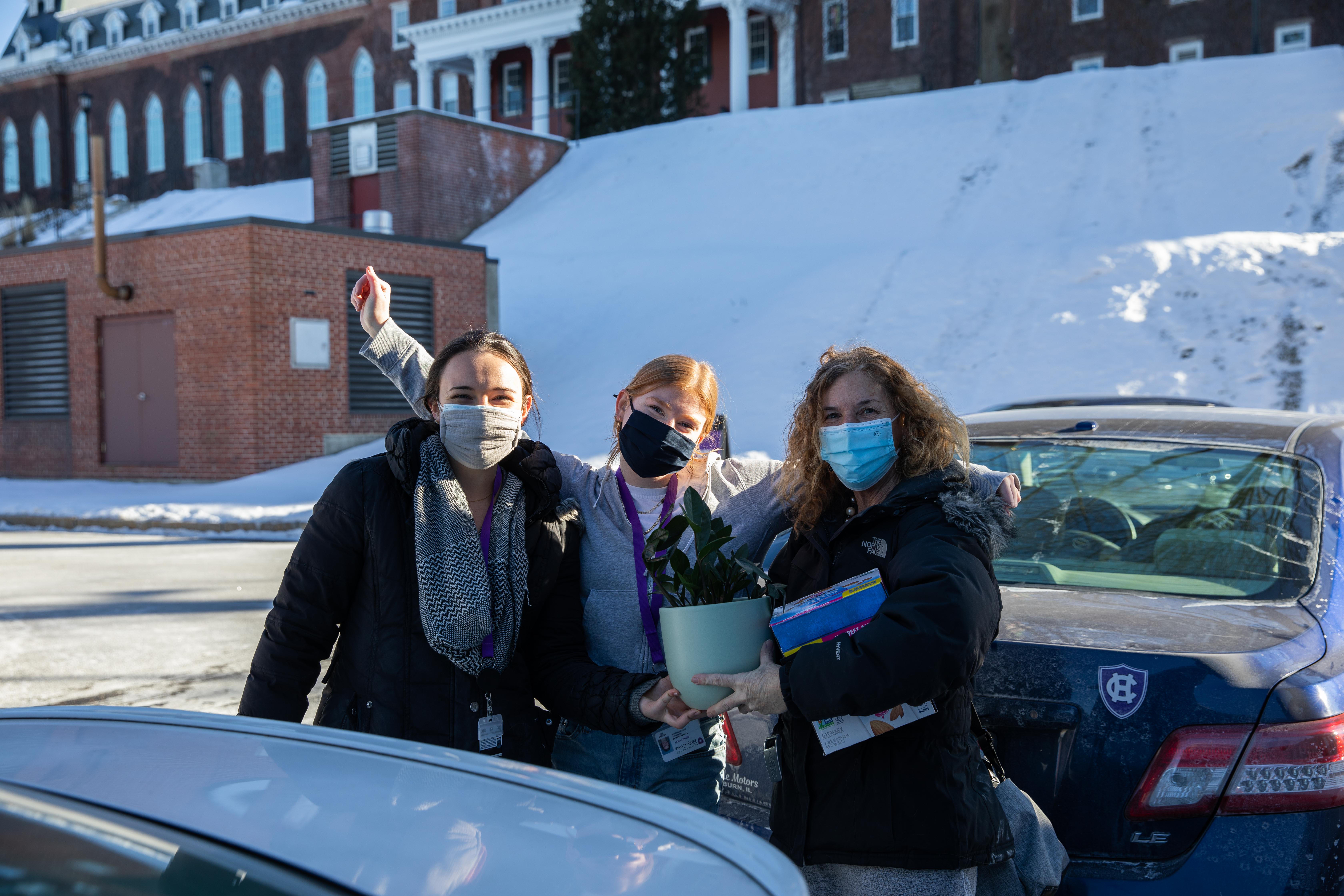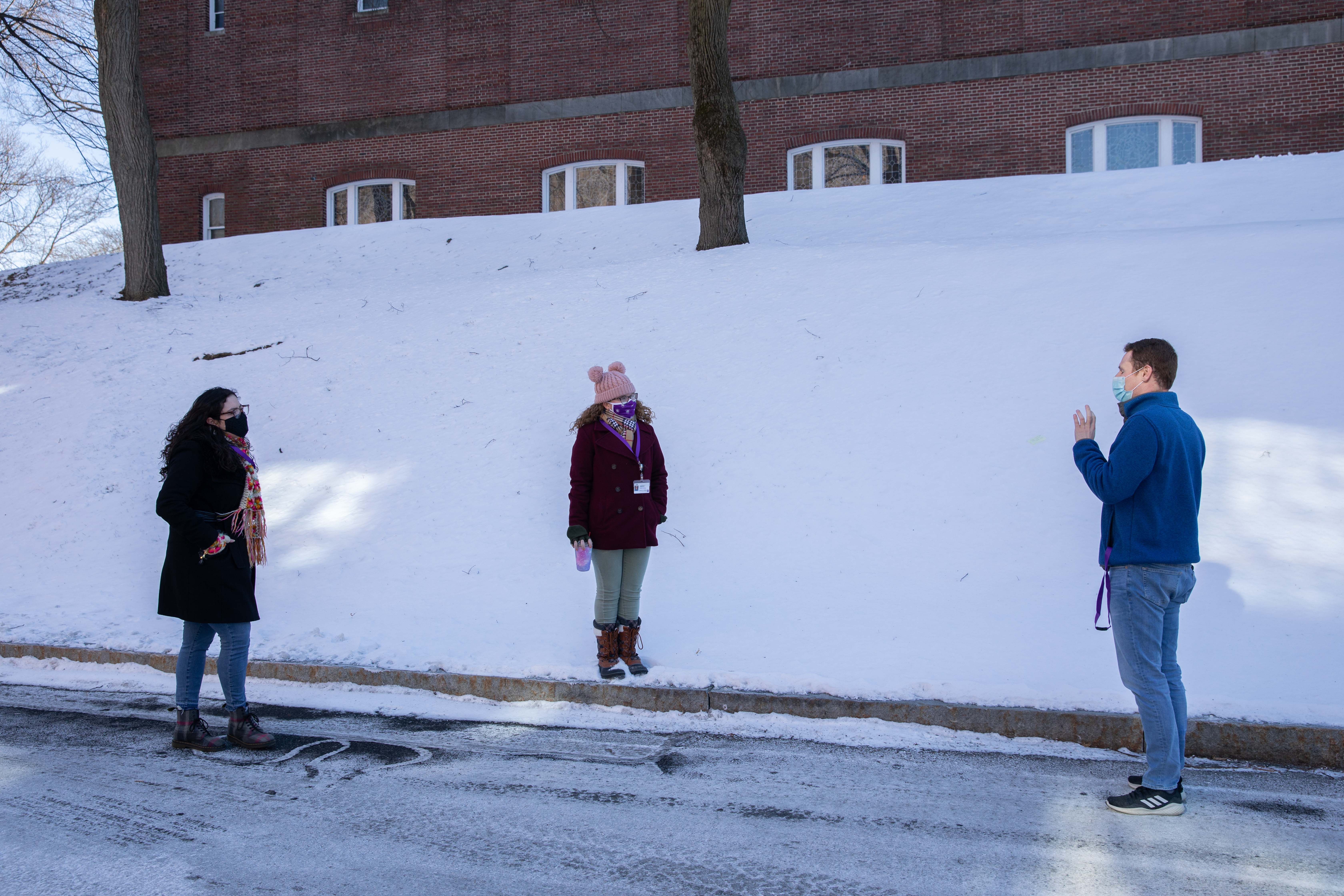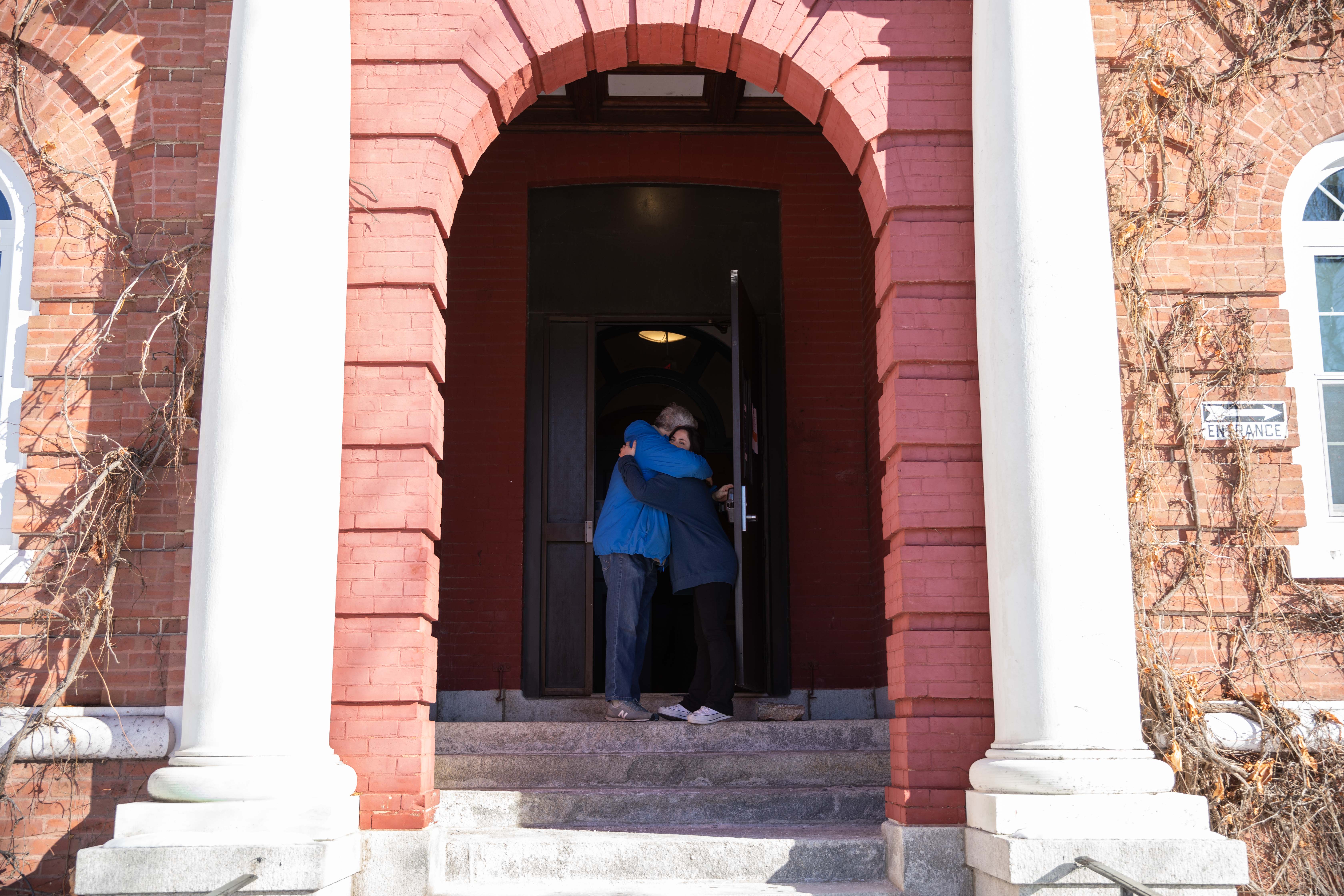Following a remote fall semester, students and their families arrived in late January for the highly anticipated spring semester move-in at Holy Cross. Managed over the course of two weeks to enable social distancing, students' return to the Hill may have looked a little different—but that feeling of coming home was the same.
For the nearly 2,000 students who chose to return to campus, some new steps were involved—such as registering for and using HC Clear (an app that checks symptoms daily) and reporting to the Jo for a COVID-19 test. Students were in good spirits as they unpacked for the semester, laying out face masks alongside textbooks in their residence halls.
Students returned to a number of physical changes on campus, including plexiglass dividers, hand sanitizer stations and markers in public places to help guide social distancing efforts. Dining facilities have been consolidated and reconfigured, and a plan developed to enable flexibility for either in-person or grab-and-go dining.
Less visible, behind-the-scenes changes were also implemented before students' return this semester, such as the installation of HEPA filters in many classrooms and reassessments of max capacity limits for elevators, buildings and flex spaces. The College's COVID plan is informed by almost daily consultation with an infectious disease expert, Dr. Robin Ingalls '85, a professor of medicine and microbiology at the Boston University School of Medicine. College leaders also hired additional nursing staff and brought in a third-party testing company to manage the high-volume testing recommended for reducing the spread of COVID-19. Isolation and quarantine spaces—including a suite of rooms at a local hotel—were prepared, staff volunteered as contact tracers and student health ambassadors were appointed to assist with communicating both regulations and best practices to the student body.
In addition to those on campus, some students will complete the semester remotely. On or off campus, students will experience a transformed—but still true to character—College community.
"Some of the most important aspects of the Holy Cross experience are in the community that we have built together," says Michele Murray, vice president for student affairs and dean of students. "We are committed to helping students continue to build community and make those memories that make the Holy Cross experience what it is. Living in the pandemic doesn't mean that we won't have these elements—they will just look different."
Among these creative adaptations are a series of programs and fun activities for students to keep busy and maintain social contact with their classmates. The College has invested in the "My HC" student engagement platform, which includes an app that students can download to keep track of all the student programming, activities and events coming up on campus or remotely.
The Office of Student Involvement will offer "grab-and-go" kits for students to pick up alongside dinner in Kimball for remote events later in the evening—paint nights, movie nights and spirit days around athletic games. They are working on opening an outdoor skating rink and beautifying local running paths to encourage students to get outdoors as nice weather approaches. Future plans include a kiosk in Hogan that will enable students to check out equipment—such as snowshoes, snowman building kits, igloo building kits, video games, playstations and board games—to enable activities that can be done alone or in small groups.
"As it gets nicer outside, we will have many outdoor games, including badminton, spike ball, KanJam and pickleball," explains Brenda Hounsell Sullivan, assistant dean and director of student involvement. "In addition to our vibrant program calendar and club and organization events, we want to find small ways to bring joy to our community."
The Office of Multicultural Education, aided by a new, more visible location in Hogan, will fill another important role: connecting with students who feel their experience—especially during the pandemic—isn't shared by many of their peers.
"We have a more targeted lens on those who feel like the narratives about what quarantine life was like don’t relate to them," explains Michelle Rosa Martins, director of the Office of Multicultural Education. "We want to be visible on campus to really talk to students about what it means to come back to a campus that may not reflect what their experience looked like last semester or may not look like their home life."
The Chaplains' Office continues to offer programming this semester that seeks to connect students in meaningful ways. Many of their normal programs will continue virtually. The chaplains will offer retreats and prayer experiences online—such as the recent racial justice examen—and offer a weekly podcast for reflection. Famous for their food and hospitality, they'll also introduce alternative ways for students to continue to enjoy these, such as through the “Res Hall Eats” program where students create nourishing snacks in their own spaces from food easily accessible on campus. The Chapel is open for daily and Sunday liturgies in person as well as for quiet reflection.
"The goals of the Chaplains' Office haven’t changed this semester,” says Marybeth Kearns-Barrett '84, director of the Office of College Chaplains. "We are still focused on accompanying students as they attend to their relationship with God and as they build inclusive communities, growing in solidarity with one another and the people of Worcester. We will continue to invite our community to slow down and be attentive to what is going on in our hearts and in the world around us."
Students interested in participating in the programming offered by these and other offices should download My HC or reach out to the office staff to get involved. Engagement at Holy Cross will look different this semester, but the College community will continue to work together to find meaningful experiences of connection and joy.
"The goal is not to re-create the Holy Cross experience in these COVID times, but to find expressions of the Holy Cross community and experience that are COVID-friendly," says Dean Murray. "In our community, we will have people on campus, studying from home, in quarantine and elsewhere, so having all of these outlets to bring people together in a meaningful way and maintain connection with one another—this is what keeps the Holy Cross experience alive."
COVID-Consciousness and Community Top Priorities as Spring Semester Begins on the Hill
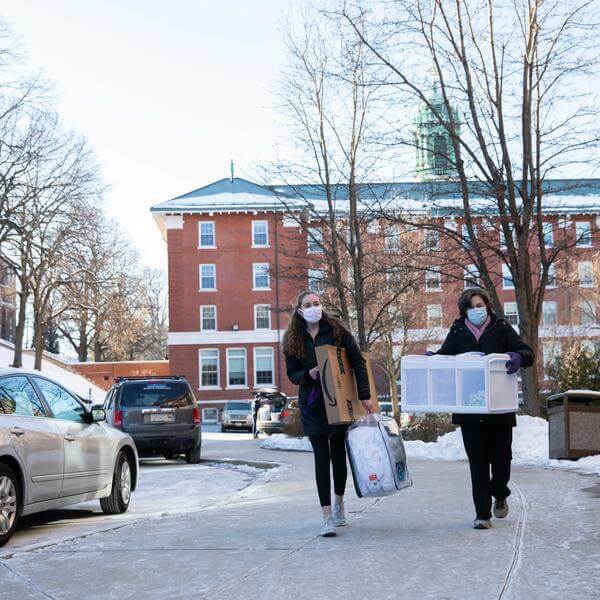
Holy Cross welcomes students back to a semester unlike any other
Read Time
5 Minutes
